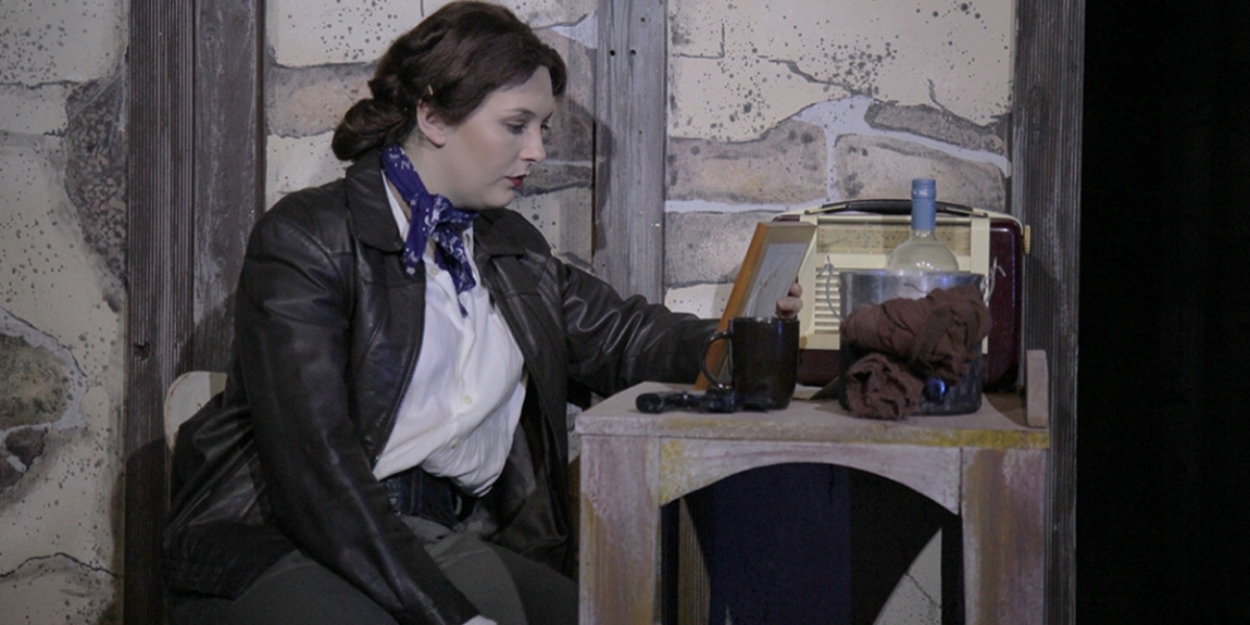Review: THE WHITE MOUSE at Goodwood Theatre And Studios
An important part of Australian hisory.

Reviewed by Barry Lenny, Sunday 19th February 2023.
Peter Maddern's play, The White Mouse, tells the story of Australian, Dame Nancy Grace Augusta Wake, AC, GM, who was a leader in the French Resistance during the Second World War, code-named 'Hélène'. She was actually born in Wellington, New Zealand, but she grew up in Sydney. Emily-Jo Davidson again plays Nancy in this re-mounting of the successful 2020 Fringe production. She is joined by Stephen Schofield and Charles Herkes in various supporting roles.
Before the war began, Nancy was a journalist in Europe for the Hearst organisation, based in Paris, and was witness to atrocities carried out by Nazis in several cities before hostilities began. With the rise of the Nazis, she fled to England in fear of her life, and then trained with the Special Operations Executive, the SOE, returning to France as a member of the Maquis, French and Belgian rural guerrillas. They fought against both the German occupying forces and the complying Vichy regime. The Gestapo nicknamed her The White Mouse for her skill in eluding capture.
The work is part play, part monologues, switching between the two at the numerous scene changes. The play opens with Nancy parachuting into France and introducing herself to the audience, before being met by Henri Tardivat, played by Schofield, her contact in the Maquis. Jacques, another member of the group, played by Herkes, is unimpressed that a woman has been sent to them, but he is quickly brought to the ground with a couple of blows from Nancy.
In a flashback, we find her at a café with a man, who turns out to be Henri Fiocca (Schofield). She tells him of the dreadful things that she has seen, and he proposes. Nancy married him before leaving France in 1939, but he was killed by the Germans in 1943. In another scene she confronts a captured German soldier (Herkes) and we see the marked difference between her fighting for ideals and love of France, and him fighting for power and control.
Nancy Wake was awarded the George Medal, the Croix de Guerre 1939-1945, the Presidential Medal of Freedom, the Medal of Freedom, and the Legion of Honour. She married again, to John Forman, a marriage which lasted from 1957 to 1997, and she died in 2011, a few weeks before her 99th birthday.
Davidson gives a convincing performance as the lively and optimistic Nancy, bringing considerable physicality to the role. Her performance is a tour de force, and does great credit to Nancy Wake's memory.
Schofield and Herkes give strong support, although Herkes was a little hard to hear when Jacques is lowering his voice to speak in confidence to Henri Tardivat, and not wanting Nancy to overhear his comments. The performance was disrupted a little by the many rather slow scene changes, which could easily have been done in the background during the monologues. If these can be cut back it will improve the flow considerably.
This is a sadly overlooked and important bit of Australian history, so be sure to catch this performance. Book here.
Reader Reviews

Videos

